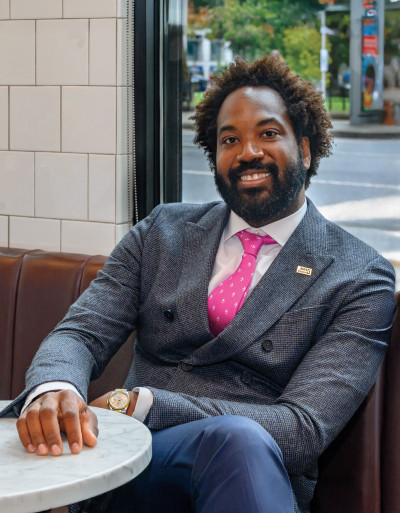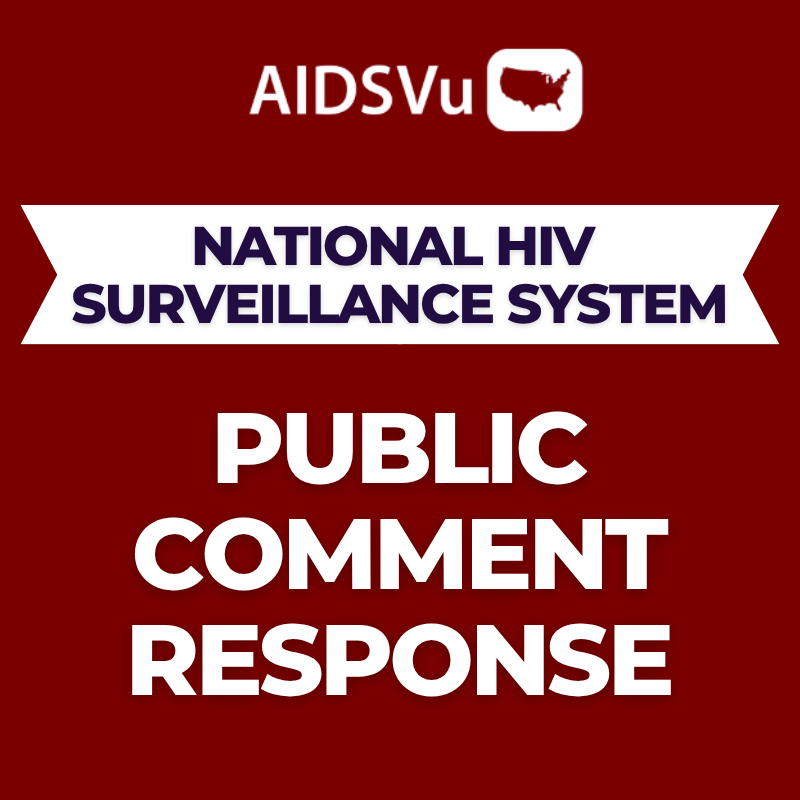Dr. Allison Mathews, MA, PhD is the Executive Director of the Gilead COMPASS Faith Coordinating Center at Wake Forest University’s School of Divinity. Dr. Mathews is the co-founder of HIV Cure Research Day. She specializes in the intersections of race, class, gender, sexuality, and religiosity on HIV-related stigma.
Your work focuses on the intersection of faith and health. What drew you to this line of research?
I had a very religious upbringing. I grew up doing work in the church and integrating community-based approaches. My original interest was looking at how Black gay men deal with stigma related to being Black, gay, spiritual or religious, and going to churches.
A majority of the stigma is associated with anti-gay theological stances and racism. How that manifests in the church is that if you don’t fit into these normalized categories and have been justified and celebrated in the Bible and other sacred texts, you are cast out and stigmatized. My interest sparked at the intersection of these experiences which has led me to do work around HIV and faith.
As a sociologist, I explored these topics in my dissertation and continued to do work in HIV. I worked in HIV clinical trials and engaged with the community to educate people about the issue. I have been able to integrate my family life, my upbringing, and my clinical trial experience into my research. I am now the Executive Director of the COMPASS Initiative Faith Coordinating Center, where I work with faith-based organizations to address HIV-related stigma. This center focuses on preparing ministry and nonprofit leaders to address the needs of vulnerable populations such as rural communities in Appalachia, African Americans, and LGBTQ individuals.
You have compiled a database of faith-based organizations in Southern states that provide HIV-related services, which is now available on AIDSVu. When you set out to compile this list, what were your goals? How do you see a list like this helping people living with HIV or those who could benefit from HIV prevention in the South?
The original idea behind developing the faith-based service locator started with the Faith Coordinating Center and the launch of the Black Faith and HIV initiative. We noticed it was difficult for us to find faith-based organizations that were doing HIV work. Previous research shows that there are about 10,000 congregations in the United States that have people living with HIV and have HIV-related programming. However, there is no database for this.
We began thinking about ways to better serve people who are affected by HIV and soon realized that creating a database was the first step for faith-based organizations to recognize that they are not alone in addressing HIV. We wanted to provide an ever-growing resource for those who are looking for a faith-based community that is open and affirming to people who are living with or are impacted by HIV.
As part of your efforts to compile this list, you asked faith-based organizations in the South to fill out a survey about their connection to health and HIV. What kinds of questions did you ask, and were there any responses that stood out to you?
We asked faith-based organizations and faith leaders to take this survey. The goal was to identify faith-based organizations that have any HIV-related programming. We asked about how they are connected to HIV work and what resources they were providing. The most interesting finding was that most of the people who took the survey agreed that they should be talking about sex and sexuality in churches and that we should not associate HIV with sexual orientation.
It is not only the responsibility of faith leaders, but also deacons, music ministers, and other people in the church to better engage about topics are related to HIV. This is unique because, generally, people assume that most faith leaders would not agree to such. It was important for us to establish baseline information about people who are providing these services.
Another interesting finding was that the majority of the faith-based organizations that completed the survey were within a five-mile radius of HIV testing services. Many faith leaders want to be engaged in HIV work, but do not realize that there is a high prevalence in their community and that they have resources within driving distance. The faith-based service locator allows people to find their faith-based organization, see the prevalence in their community, and identify services within that radius.
Faith-based organizations and the Black Church in particular have played a large role in stigma reduction, prevention, testing, and care throughout the HIV epidemic. How does that history inform your survey, and what do you see as the church’s current role?
Faith-based organizations have remained a focal point for Black communities over the years. Oftentimes, Black churches have their own banks, help people find housing, provide substance abuse support, and help provide other essential services. The role that Black faith institutions can serve in addressing HIV is integral. An element that has kept us from eliminating the stigma is that while Black faith institutions have been involved in the HIV epidemic throughout the last 40 years, that support was starting to wane.
However, during the peak of the COVID-19 pandemic, churches and faith communities realized how important it was for us to reengage in conversations about health. It forced many faith communities to get online, giving them a new way to inform people about health and healthcare. This reignited the energy behind addressing HIV, COVID and other health issues while simultaneously getting us better connected to each other through online resources.
August 29 is National Faith HIV/AIDS Awareness Day, a day to engage faith communities to work together for HIV/AIDS education, prevention, treatment, care, and support. What message do you have for the community on this day?
National Faith HIV/AIDS Awareness Day is an opportunity for people of faith to acknowledge our role in ending the epidemic. Within our faith communities, having conversations about HIV and other kinds of relationship dynamics is essential. Encouraging faith leaders to engage in these conversations and raise the awareness for this topic is important to their faith communities.
We encourage people to visit blackfaith.org, which is our website for the Black Faith and HIV initiative where we have resources including how to talk to your faith leaders and family about these topics. The website provides information on interpreting and better understanding the sacred text and how it ties into these conversations. We want people to be equipped to have these conversations.




